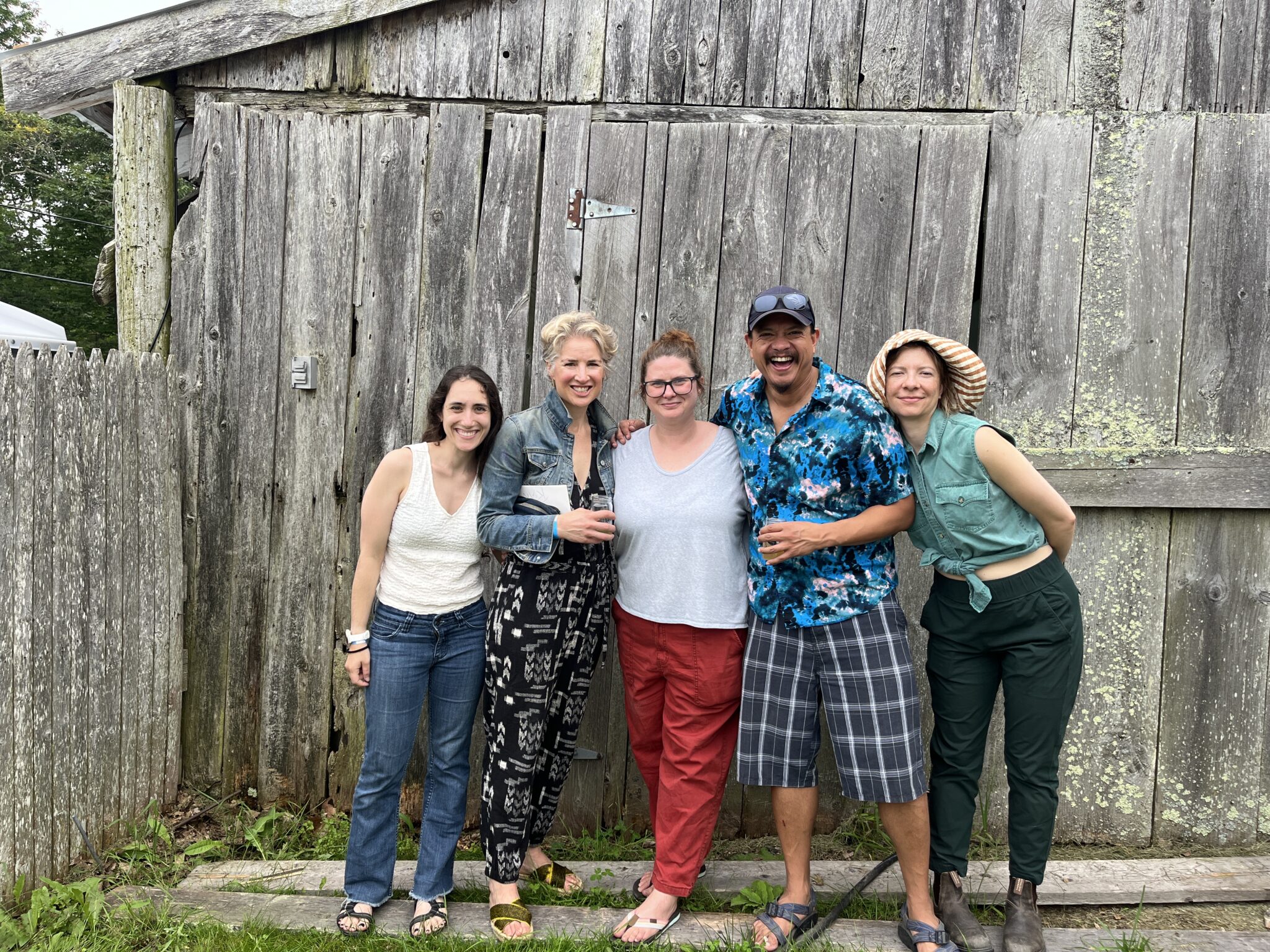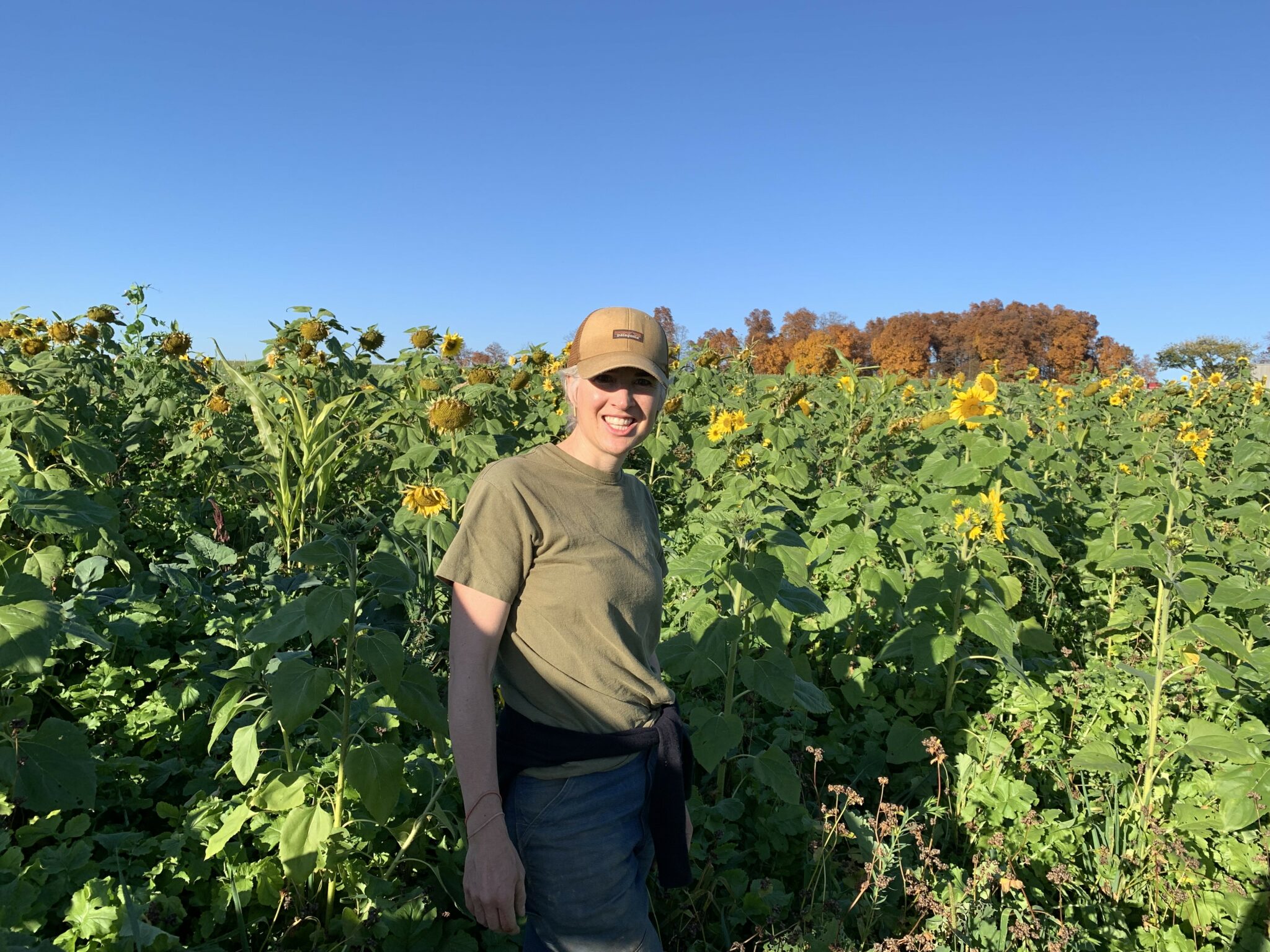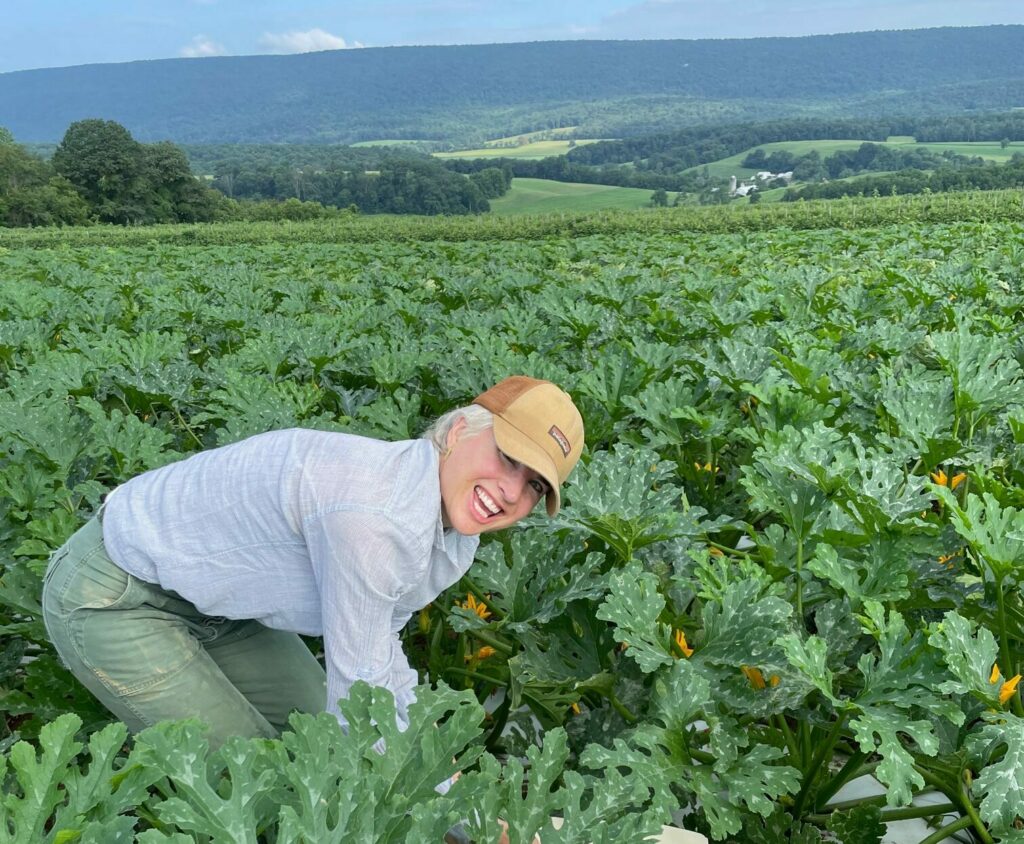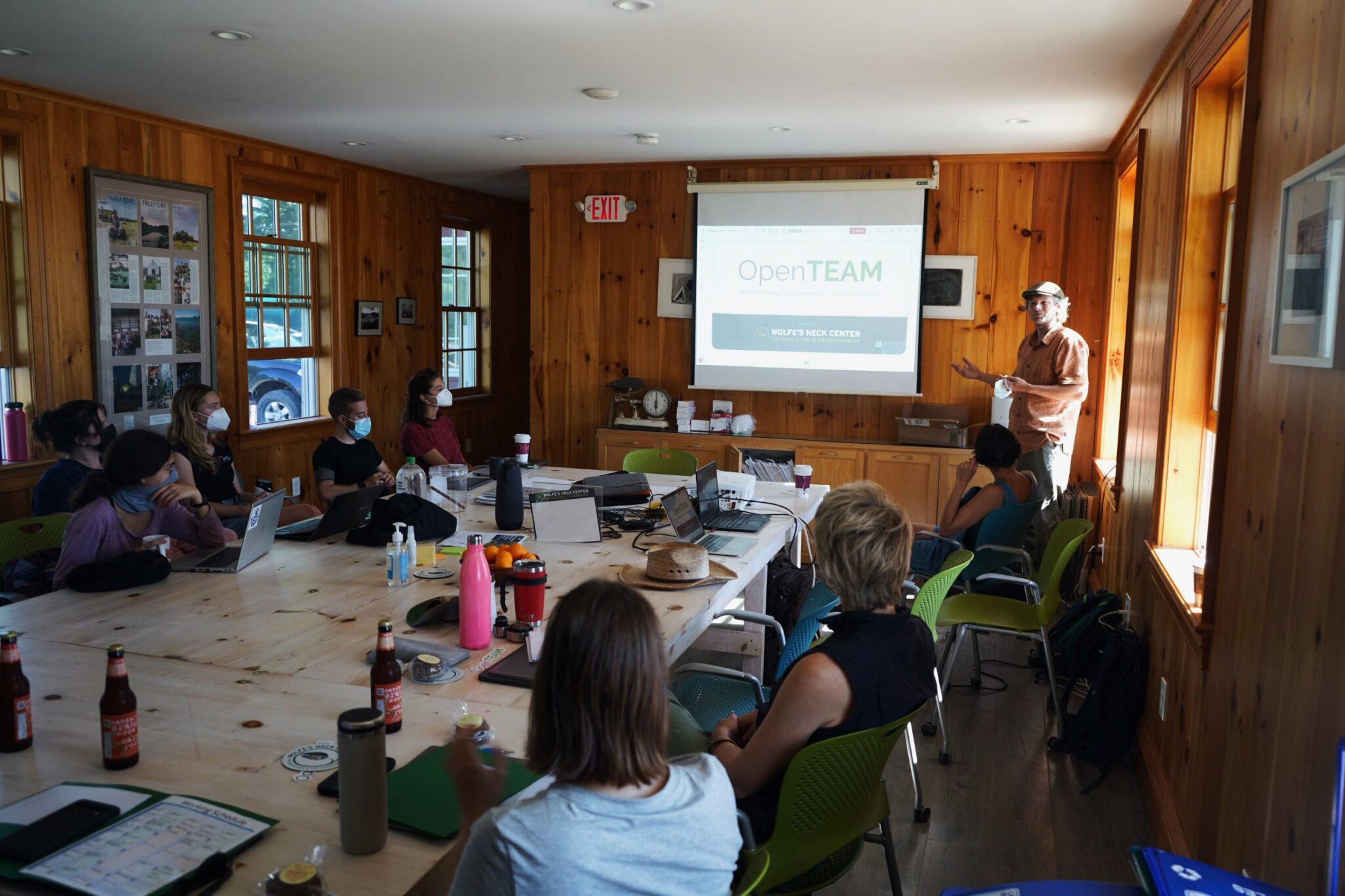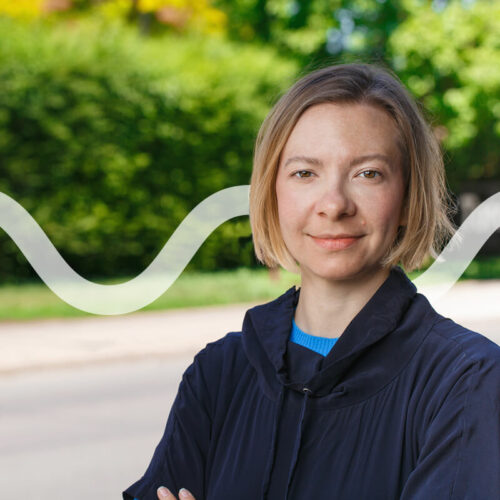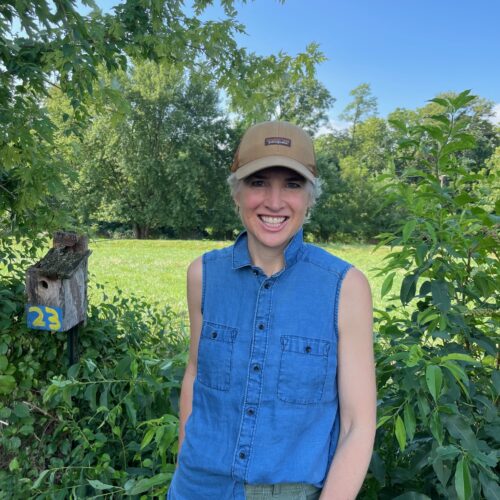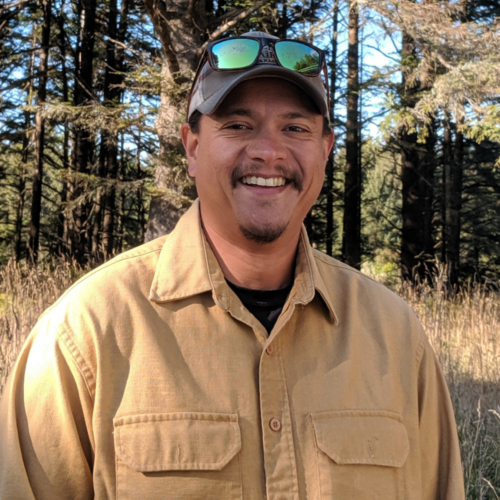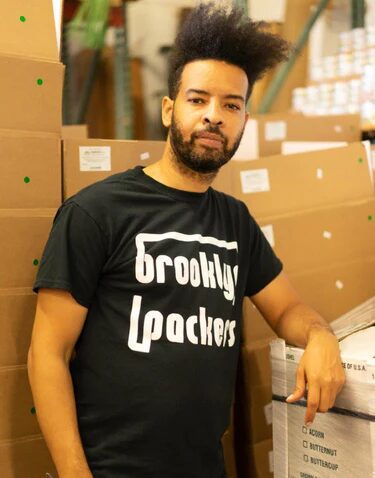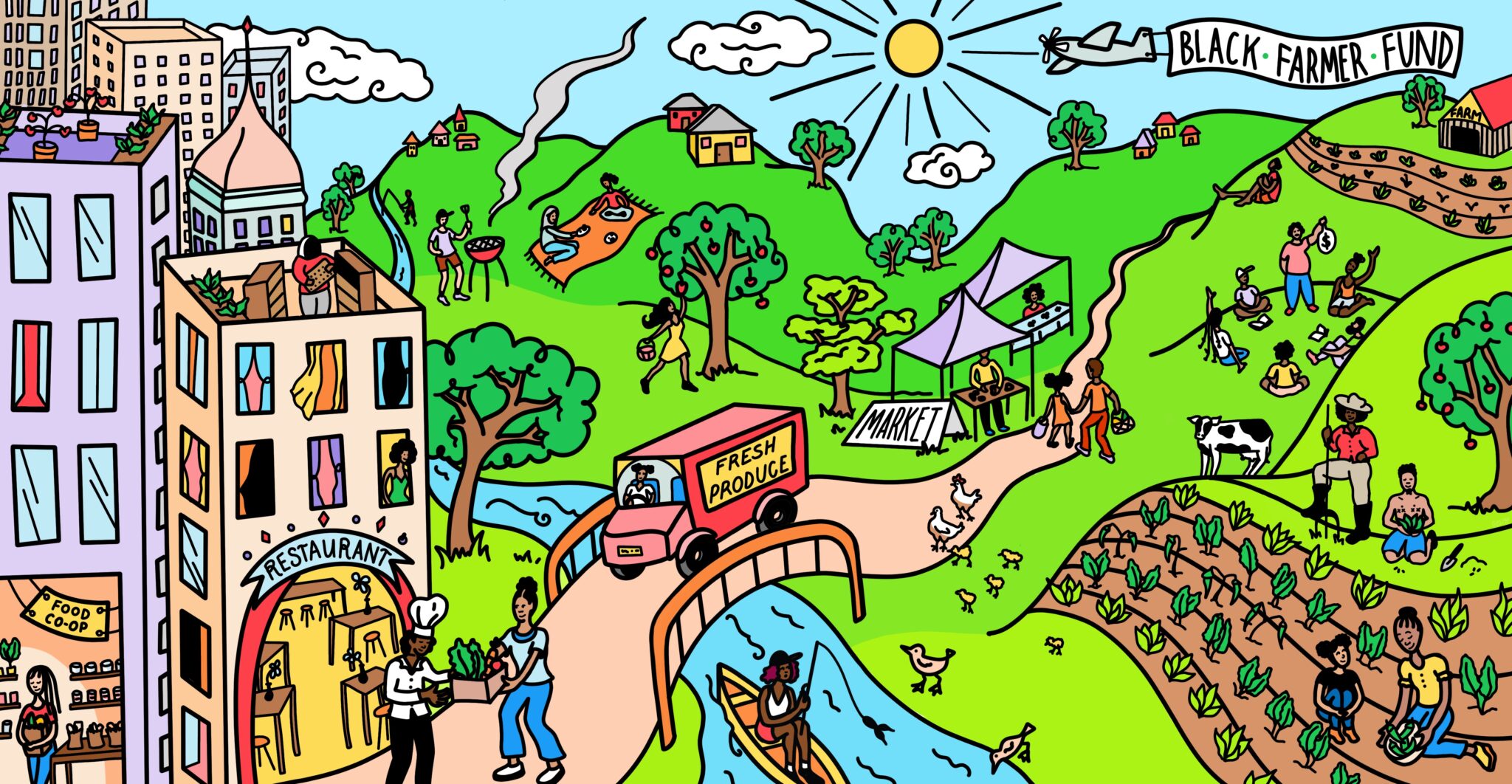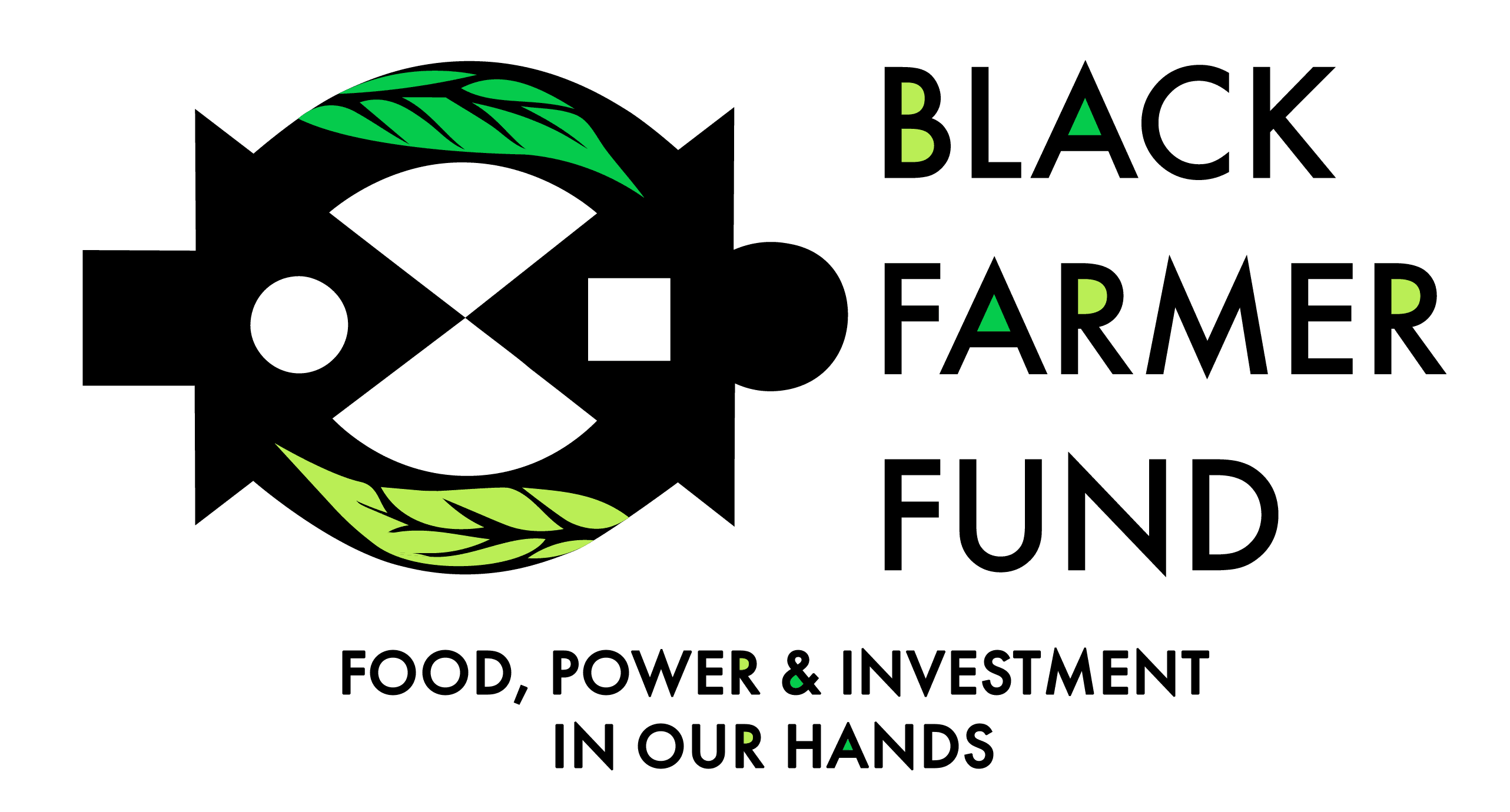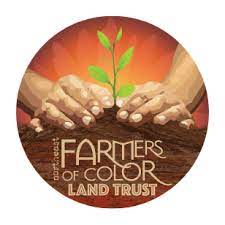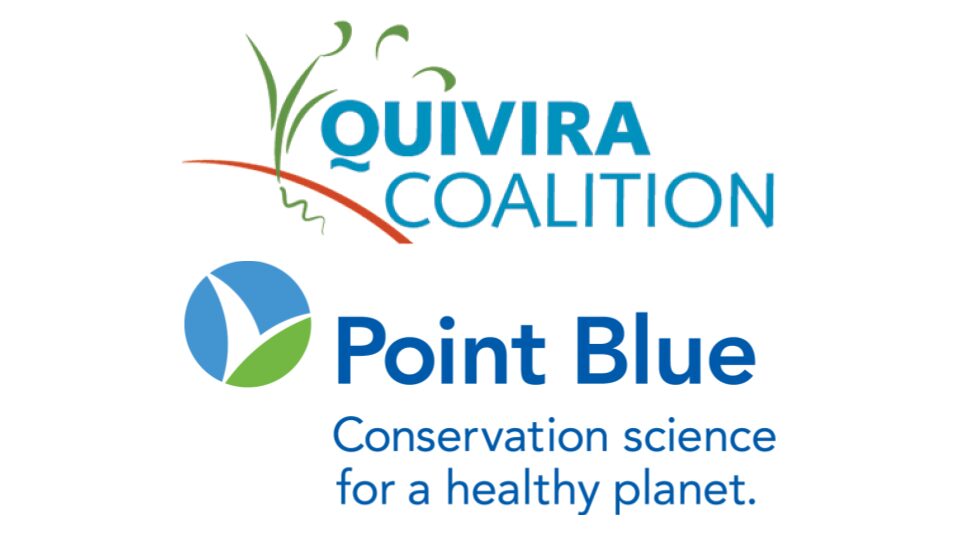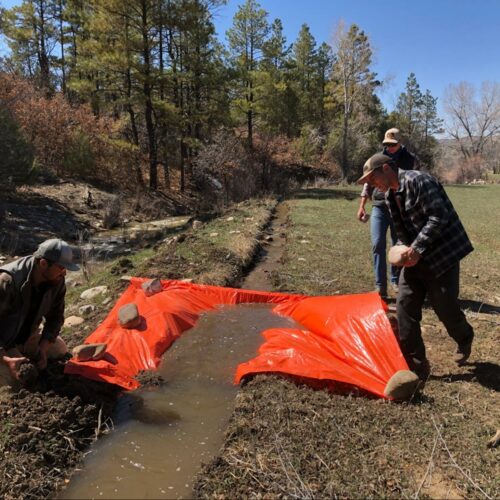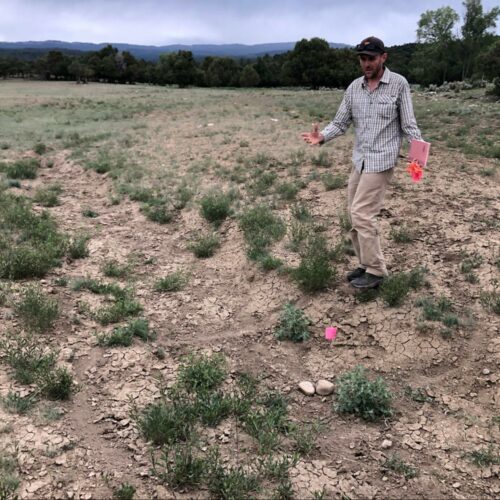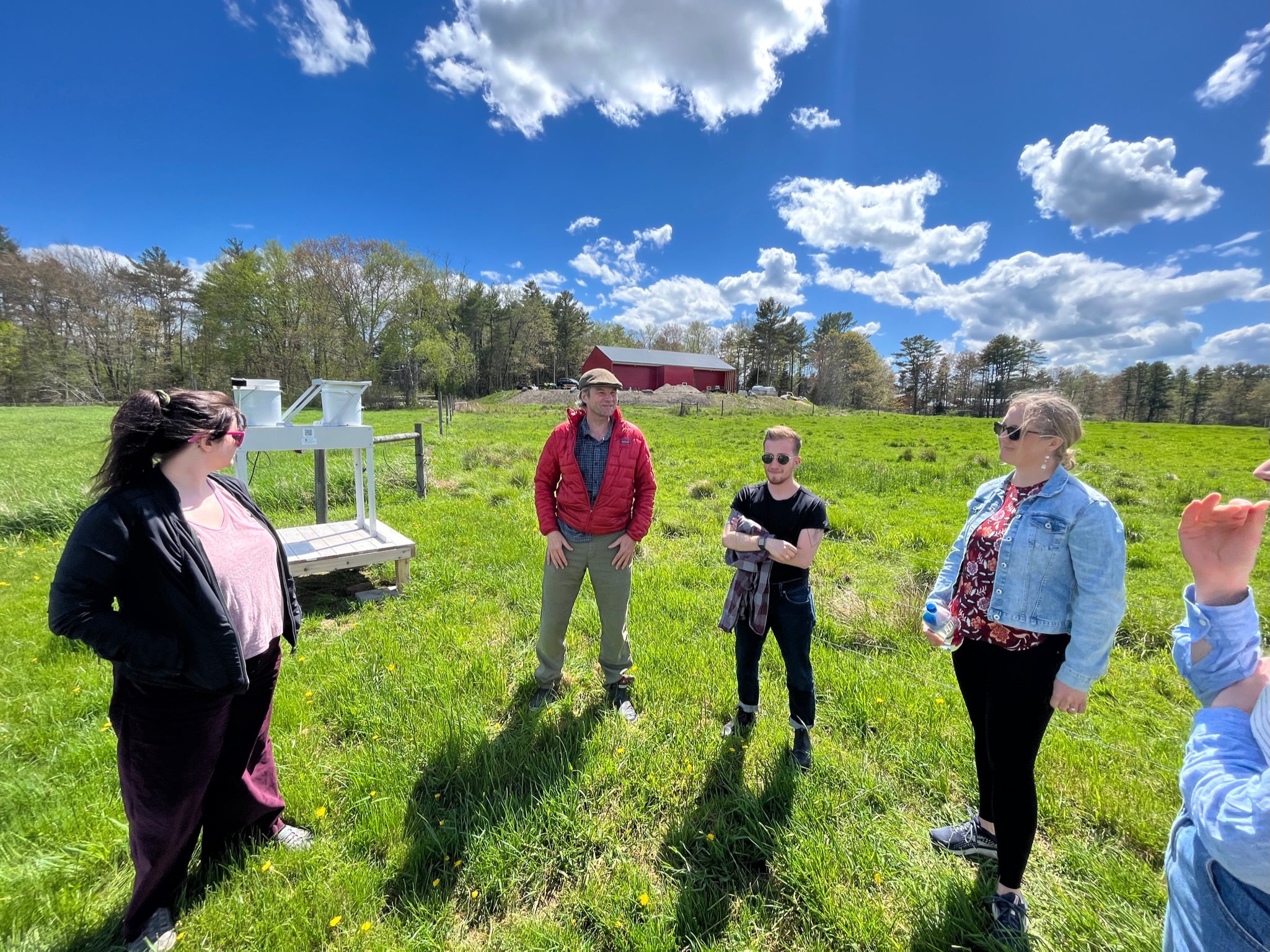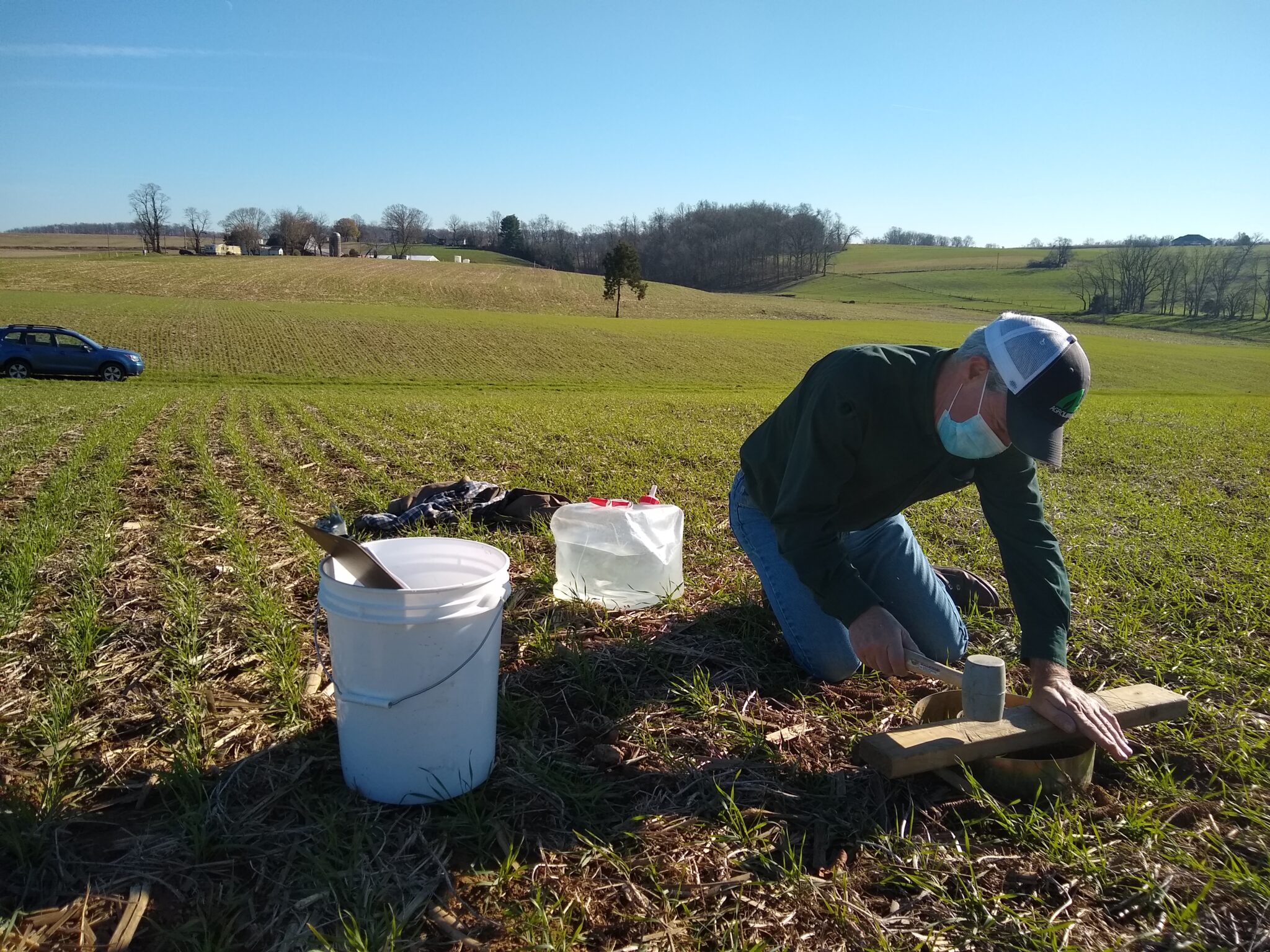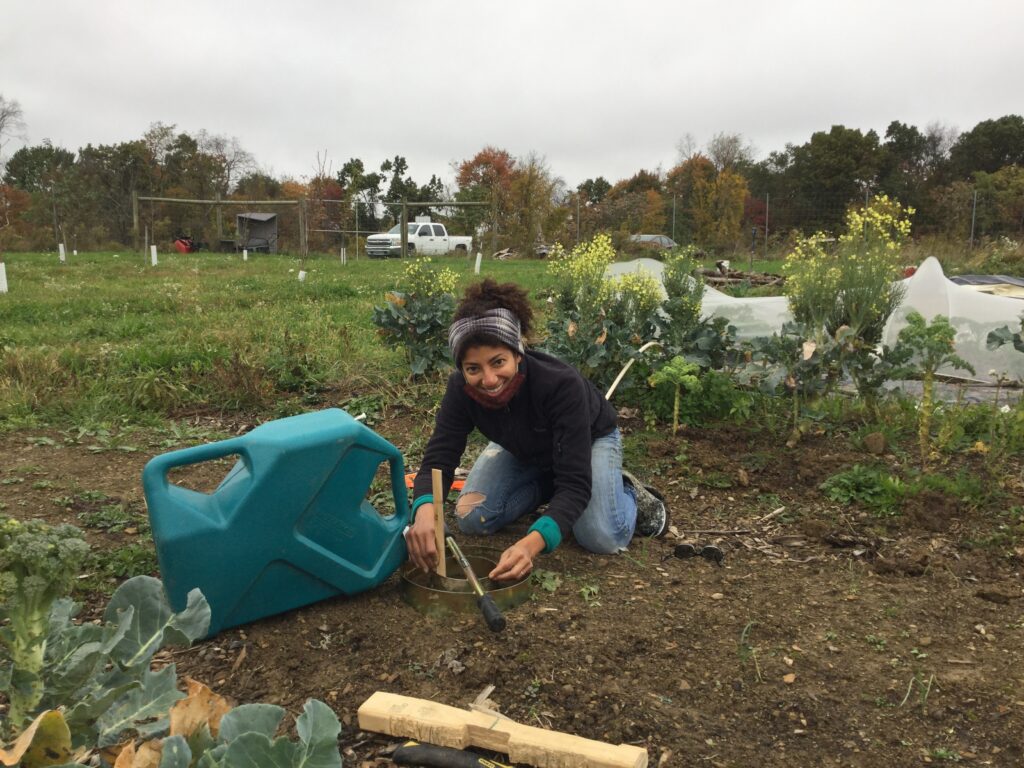This past July, our OpenTEAM Fellows Program ended its inaugural year. Through this program, we connected skilled individuals with seven farm network organizations to support their goals, meet ground-level needs of producers, and refine digital tools in OpenTEAM’s Technology Ecosystem.
Open Technology Ecosystem for Agricultural Management (OpenTEAM) is a community of farmers, ranchers, businesses and developers working to increase food system resiliency in the face of climate change. Together, we are equipping food system leaders with shared knowledge, collaborative frameworks, and open-source, connected technologies to build climate change resiliency and thriving communities.
Fellows onboarded producers to open-source digital tools, collected feedback, connected with developers, and supported other host-specific projects. Below, Fellows share their learnings and reflections from the past year!
Sara Legg, General Mills
What path brought you to this Fellowship?
I have always been drawn to working directly with people, as is evident from my education in anthropology and passion for field work. Most of my career had been spent in the service design and innovation sector, and for a long while I felt like I was contributing meaningfully to others. Over time, however, I saw how the work I was making in the world wasn’t having my intended impact, and this, coupled with a personal affection and political enthusiasm around agriculture’s ability to heal (in so many ways) led me to OpenTEAM.
What was the most important thing you learned over the course of the program?
That Friendship is magic. Just kidding — I learned that from My Little Pony. I can’t say there was a singular most important ‘thing’ I learned over the last year. There are things which I had very minimal knowledge of coming into the fellowship, that I will now rely on to continue to grow in my professional role and add value to my work and the lives of those around me. Two things that stand out are: 1. Agricultural management knowledge, especially large commercial management that includes practice informed by soil health principles and 2. The intricacies of how federal, state, and local government partnerships with private companies can either support or hinder a community’s ability to be good stewards of the land.
How will you take what you have learned and experienced in this role into your personal and professional life?
I hope to continue to work in the agricultural sector and bring my service design and field work expertise to that work. I am always striving to be a better steward, both of community and land, and more practiced in being with others to co-create a future that prioritizes the thriving of all living things. My ambitions are broad and loose, as I like them, as they should be.
Jeanne Lurvey, Pasa Sustainable Agriculture
What path brought you to this Fellowship?
Researching regenerative agriculture and soil health during my graduate school work led me to OpenTEAM. In creating soil health recommendations for a natural foods company value chain, I saw a need for data collection at the field level to capture the management practices farmers are using and the benefits to soil health and co-benefits to the farmers from implementing these practices.
What was the most important thing you learned over the course of the program?
The program fostered so many learnings making it challenging to select one as the most important. So I will share a general key takeaway: the power and freedom of trusting in the process and the people you’re working with allows for great things to unfold, be it unexpected or anticipated.
How will you take what you have learned and experienced in this role into your personal and professional life?
The fellowship has provided an incredible opportunity to grow both professionally and personally. Both OpenTEAM and Pasa are strong, inclusive organizations that work to build community. These environments inspired me to learn not only about digital tools but farmers’ unique experiences, and the groups supporting them. They also provided spaces for me to feel supported in taking risks to learn new skills, share my ideas, and to develop stronger communication and collaboration skills.
The fellowship confirmed my strong interest in working in sustainable agriculture with farmers and provided an essential bridge for me to apply my masters degree and prior work experience to successfully transition my career. Through this experience, I am grateful to have found Pasa, an organization not only doing the work that interests me but to work alongside incredible humans who have met me with grace and continue to share their knowledge. I am excited to continue the work, transitioning from the fellowship into a full time position at Pasa.
Jeff Borum, California Association of Resource Conservation Districts
What path brought you to this Fellowship?
Hannah Tikalsky, then California Association of Resource Conservation Districts Program Manager and now OpenTEAM Director of Network Development – Environmental Markets, encouraged me to apply. And, I found the possibilities of the Ag Data Wallet interesting!
What was the most important thing you learned over the course of the program?
Much deeper understanding of back-end work and developmental processes [of technology]; now able to convey to producers, TAPs, and other community members why certain changes take longer than others and why certain developments are possible or not possible, etc.
How will you take what you have learned and experienced in this role into your personal and professional life?
The fellowship has most definitely provided networking opportunities, first and foremost. Also, I have been able to learn a lot from the different working groups and communicating with folks on Hylo and Slack. I really enjoyed utilizing the toolkit and promoting its use in general. And I think it has influenced me to learn more about the integration of tech into ag spaces, especially for small and medium producers, BIPOC and women producers, and beginning ranchers and farmers.
Genna Fudin, Point Blue Conservation Science and Quivira Coalition
What path brought you to this Fellowship?
My path to this Fellowship began with a passion for working with soil, which I discovered at a young age. The last few years I have been working to identify the specific career path within soil health-related fields that I want to pursue as a young professional. My undergraduate thesis project focused on soil health initiatives and community compost work, which I believe caught the attention of the OpenTEAM Hub site hosts. During the Fellowship, I had the privilege of working with Point Blue Conservation Science and Quivira Coalition on the Range-C Monitoring Program, aligning well with my background. This experience allowed me to expand my knowledge of soil management practices and led to significant personal and professional growth throughout the year. I am incredibly grateful for this enriching opportunity!
What was the most important thing you learned over the course of the program?
During the program, I had the opportunity to attend interesting conferences and work with farmers on diverse management practices at regenerative ranches across seven states (California, New Mexico, Colorado, Nevada, Texas, New York, Maine)! The strong connection between producers and technology fascinated me, as farmers/ranchers/land stewards inextricably shape the agricultural technology toolkit OpenTEAM works to co-create with these community members. This newfound appreciation for technology as a supportive ally in protecting the environment has transformed my perspective on how technology can relate to agriculture and work to conserve our shared natural resources in a more sustainable and less extractive way.
How will you take what you have learned and experienced in this role into your personal and professional life?
I am preparing to start a new role with a conservation district in California through an AmeriCorps program called GrizzlyCorps. I will be based in Mendocino County and will be working on sustainable agriculture and water management projects with the local resource conservation district and their community partners. I am so excited to share the OpenTEAM framework with the resource conservation district I will be working with, and I feel that the combination of both my OpenTEAM Fellowship experience and my upcoming role in an AmeriCorps role will help better inform what specific area of food systems and climate smart agriculture related work I want to pursue as an early career professional.

